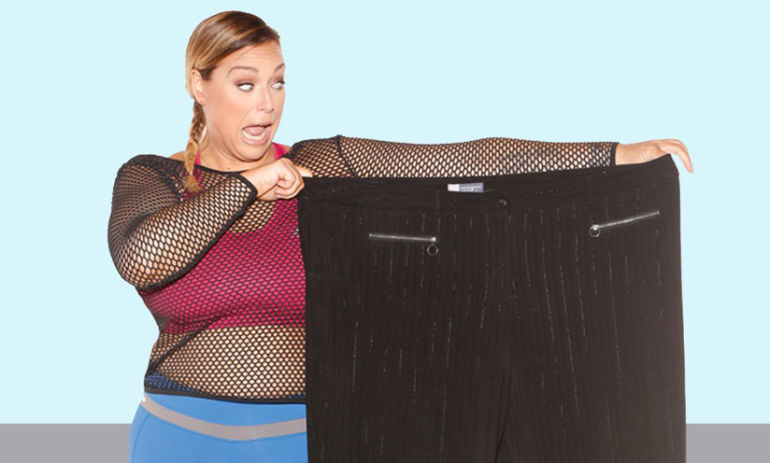The Top Five things That Make You Fat
There is only one thing that makes people fat, and that is excess calories. It takes a deficit or surplus of 3,500 calories to lose or gain one single pound of body fat. The three factors that the deficit or surplus is decided on are these: The first is your resting metabolic rate (RMR); just by breathing and living everyone burns a certain number of calories. Let's list the two remaining factors: calories consumed from the food and beverages you take in, and calories burned through some sort of physical activity, such as exercise. What is left is a surplus of calories (weight gain) or deficit of calories(weight loss). Many people gain weight because they consume excessive calories or because they don't consider how quickly small amounts of calories add up. The top five things that can make you fat are:
1. Coffee—You may be thinking, "How can coffee make me fat?" After all, it's only water and caffeine, which has no calories. Enter what I call "the Starbucks effect.' Today, many people have become addicted to flavored, oversized coffee drinks and their high-caloric content. If you think your Starbucks coffee run is harmless, consider that a Venti Mocha Frappucino® has 346 calories, a Venti Caramel Macchiato® with whole milk has 312 calories, and even a grande latte with non-fat milk packs over 200 calories. Every squirt of caramel, mocha, or other flavorings will cost you approximately 75 calories; every sugar packet, another 25 calories. Can you believe that by making a Starbucks run, or someplace similar, twice a day, you could be consuming over 500 calories a day on coffee drinks. Based on a five-day workweek, that's 2,500 calories a week or 10,000 calories a month. Over the course of a year, there are enough calories in your coffee indulgences to pack on over 34 pounds.
2. Alcohol—So working hard is stressful. When it's over, all you want to do is to sit down, relax, and have a drink or two to "take the edge off." Sound familiar? Millions of people rely on that glass of wine, a gin and tonic, or a martini to feel better at the end of the day. The average drink has approximately 150 calories, and if you happen to be partial to mixed or exotic drinks—like daiquiris, mojitos, cosmopolitans or other tasty libations—the calorie count is substantially higher. Two average drinks can cost you 300 calories a day or 2,100 calories a week. So drinking this regularly adds over 2 pounds each month and 24 pounds each year.
3. Low-Fat, Fat-Free, Low-Calorie, and Sugar-Free Foods—If you've tracked the increase of overweight and obese people in the United States, you might have noticed that it mirrors the proliferation of foods marketed to make us thin. For years we have been tricked into thinking that we can eat more and weigh less, but it doesn't work that way. The best way to weigh less is to move more and eat less. Read labels for calories per portion, and watch the size of your portions. Any time you eat directly out of a box or bag, you are setting yourself up for potential weight-gain. Try taking a portion or two out of the box or bag and putting it in a bowl.
4. Diets—Each year over 70 million people go on a diet to lose weight, but 95 percent of them will gain all the weight back. Most will gain even more weight than were trying to lose when they started the diet. There are three specific reasons that this happens. First, when you dramatically reduce your caloric intake, your body responds by protecting its fat stores by slowing down your resting metabolism. A lower metabolic rate means you will burn fewer calories at rest. Second, many diets reduce carbohydrates, which are the primary energy source needed for physical activity. This tends to make you fatigued and less likely to increase your activity. Third, many diets force your body to convert protein from your muscle tissue for energy. Lean muscle tissue is your body's fat-burning machinery and allows you to burn more calories at rest. When you lose weight, you want it to be from fat, not from lean muscle tissue.
5. Lack of Physical Activity—The number one reason people give for not exercising is time. We can't find time to exercise, yet the average person watches television for 4½ hours every day. It has been proven that small amounts of physical activity can have a big impact on your weight and your health. There are very inexpensive "low-sweat" solutions for increasing your physical activity that you can perform in as few as 10 to 15 minutes a day—while watching television. Little moves can create big results.
Copyright (c) 2008 Craig Pepin Donat
-
Put On Your Walking Shoes For Fitness And Weight Loss
A simple walking program, a pedometer, and some quality walking shoes
-
This Common Food Ingredient is Making You Dumb
The medical conditions of diabetes and obesity are collectively
-
Why Coffee, Red Wine & Chocolate Are Part Of Adeles New Eating Plan: A Doctor Explains
-
Amazing Advice On Getting Rid Of Tummy Fat Forever
Do you want to get rid of your excess tu
-
Discover The 3 Foot Types to Pick the Perfect Fitting Zumba Shoes Possible
Since the popularity of zumba, most peop
-
Healthy Ways Of Losing Weight
The causes for folks having poor health are numerous. One of the more
- DON'T MISS
- Factors to Guide You in Finding a Healthy Weight Loss Program
- Getting Out Of Your Comfort Zone
- Introducing The Healthy Weight Loss Club
- The Weight of Thanksgiving
- The 3 Most Effective Weight Loss Plans
- How To Manage Your Weight The Right Way?
- Basic Diet Hints: Am I Able To Lose 20lb in a Week?
- Help For Sugar Cravings
- 5 Reasons This Quick Workout Will Get You In Better Shape Than Cardio
- Use This Simple Trick to Stop Overeating Today




